What Does the Law Say About Possession?
According to Idaho State law, it is illegal for any person to possess a controlled substance unless it was obtained from, or pursuant to, a valid prescription or order of a practitioner while acting in the course of professional practice, or except as otherwise accepted by law.
What is Possession of a Controlled Substance?
Idaho law dictates that a person is in possession of something if the person knows of the drug’s presence and has physical control of it or if they have the power and intention to control it. A person can be convicted of possession if they have actual, constructive, or joint possession.
Physical or actual possession is when an individual has physical control of an item or it is found on their person, such as within their pocket.
Many cases center around both aspects of constructive possession. Constructive possession is when:
- The person knows of the drug’s presence, AND
- Has both the ability and intention to control the item or substance.
Joint possession involves multiple people controlling the substance. Because constructive possession can be proven, multiple people can be convicted of possession of the same, singular substance. For example, if there is cocaine inside a vehicle and it can be proven that all of the occupants were aware of the substance, then multiple people can be charged with possession of the same substance.
How are Controlled Substances Categorized?
In Idaho, controlled substances are divided into six classifications or schedules that are somewhat based on their risk for abuse and dependence and if they are approved for legitimate medical use:
- Schedule I drugs have a high possibility for abuse, not accepted for medical use or are unsafe for use as a treatment. These drugs include opiates, some opium derivatives, and hallucinogenic substances.
- Schedule II drugs have a higher risk for abuse, have some accepted medical use, and may result in significant psychological and physical dependence if they are abused. These drugs include cocaine and opium.
- Schedule III drugs have lower risk for abuse than Schedule I and II substances, have acceptable medical uses, and may cause low or moderate physical dependence or high psychological dependence. These drugs include codeine and some steroids.
- Schedule IV drugs have a lower possibility for abuse than Schedule III drugs, have acceptable medical use, and can lead to limited psychological and physical dependence. These drugs include diazepam.
- Schedule V drugs are the least dangerous substances with the lowest risk for abuse, have an acceptable medical application, and are likely to lead to limited physical or psychological dependence. These drugs include medications with very small amounts of specific narcotics.
- Schedule VI includes volatile nitrites or poppers.
What Penalties are Associated With Possession of a Controlled Substance?
Charges that are related to the possession of a controlled substance will vary depending on prior offenses, the amount and type of drugs in possession, and other circumstances of the arrest. The maximum penalties are as follows:
- Possession of Schedule I narcotics or any Schedule II controlled substances: felony offense, incarceration of up to seven years, and a fine of up to $15,000
- Possession of lysergic acid diethylamide (LSD): felony offense, incarceration of up to three years, and a fine of up to $5,000
- Possession of more than three ounces of Marijuana: felony offense, incarceration of up to five years, a fine of up to $10,000
- Possession of Schedule I (not narcotics or LSD), III, IV, V, and VI controlled substances: misdemeanor, incarceration of up to one year, and a fine of up to $1,000.
Any conviction for Possession of a Controlled Substance, whether a misdemeanor or a felony, if the Defendant is ordered to probation, results in a requirement of a 100 year community service requirement.
Peyote
The use of peyote is allowed for Native American religious rites by individuals who are active members of any recognized Native American tribe.
What is Possession of Drug Paraphernalia?
Idaho law deems it unlawful for a person to use, or to possess with intent to use, drug paraphernalia to plant, propagate, cultivate, grow, harvest, manufacture, compound, convert, produce, process, prepare, test, analyze, pack, repack, store, contain, conceal, inject, ingest, inhale, or otherwise introduce into the human body a controlled substance.
What is Paraphernalia?
Paraphernalia can include any item that may be used in connection with illegal drugs and can be divided into two main categories:
- Items used to distribute, contain, or transport drugs, and
- Items used to ingest drugs
It is important to note the circumstances in which these items were found because spoons and scales can be used in distribution or consumption.
Examples of paraphernalia include:
- Pipe and bongs
- Rolling papers
- Roach clips
- Scales and balances
- Equipment used to test the strength or purity of a substance
- Materials or chemicals used to cut or dilute narcotics
- Plastic bags or balloons that can be used to package drugs
- Syringes or needles for injection
What are the Penalties for Possession of Paraphernalia?
The use of, or possession with the intent to use, paraphernalia for any of the following reasons is considered a misdemeanor that is punishable by up to one year of incarceration and a fine of up to $1,000:
- Growing, planting, cultivating, or harvesting controlled substances
- Compounding, converting, preparing, or processing controlled substances
- Packing, repacking, storing, or containing controlled substances
- Testing or analyzing controlled substances
- Containing, hiding, or concealing controlled substances or
- Ingesting, inhaling, injecting, or administering controlled substances
Do I Need an Attorney?
The State of Idaho takes a strict stance on all drug charges. A drug crime conviction has, in the past, caused a person to be ineligible for federal funding, including student loans. Additionally, many fields of employment, such as healthcare, first responders, military service, and financial services, rarely employ individuals with drug convictions. For experienced and knowledgeable help fighting drug charges, call Tatum McBride Law, P.C., today at 208-584-2590 or fill out a contact list for a free consultation.




